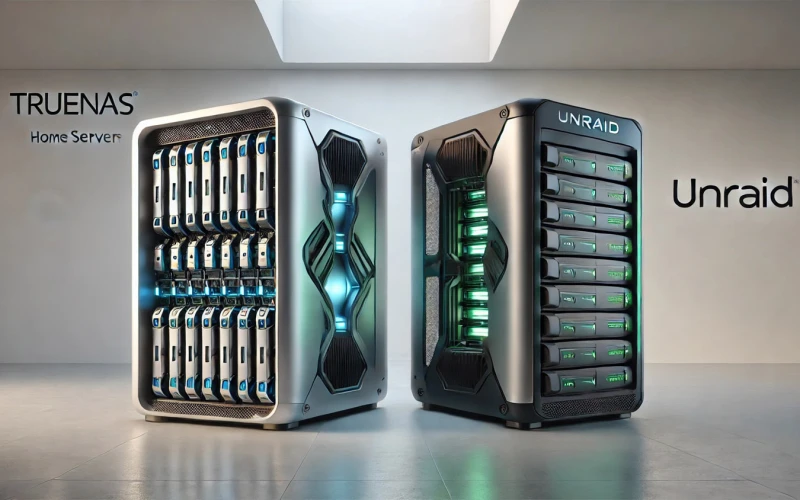
Detailed comparison table for TrueNAS vs Unraid in terms of their pros, cons, and an indication of the "winner" in each aspect:
| Category | TrueNAS - Pros | TrueNAS - Cons | Unraid - Pros | Unraid - Cons | Winner |
|---|---|---|---|---|---|
| Ease of Setup | Free and open-source, detailed guides | Steeper learning curve | Easy-to-use GUI, beginner-friendly | Slightly less customizable | Unraid |
| Cost | Free software (TrueNAS CORE) | Requires higher-spec hardware | Affordable license fee | Not free (one-time payment required) | Depends on use |
| File System | ZFS (advanced reliability & snapshots) | More resource-intensive | XFS (expandable, simpler management) | Less advanced features than ZFS | TrueNAS (ZFS) |
| Hardware | Works best with server-grade hardware | May not perform well on lower-end systems | Flexible; works with varied hardware | Requires parity disks for RAID-like setup | Unraid |
| Data Protection | Strong RAID-Z support; bit rot protection | Limited redundancy options in SCALE version | Supports parity drives; flexible pools | No true RAID implementation | Depends on need |
| Scalability | Enterprise-level scaling options | Can be overkill for home users | Easy to expand by adding drives | No automatic balance across drives | Unraid |
| Virtualization | Advanced virtualization capabilities | More complex setup for VMs | Built-in Docker and VM support | Limited VM features compared to TrueNAS | Depends on need |
| Performance | Superior IOPS performance (ZFS) | Requires more RAM for optimal performance | Decent performance for general tasks | Slower under heavy I/O workloads | TrueNAS |
| Community Support | Large, active community (TrueNAS CORE) | Smaller SCALE community | Growing, supportive community | Slightly less established | TrueNAS |
| Use Case | Ideal for enterprise and power users | Can be overkill for personal use | Perfect for media servers and home labs | Limited for enterprise-level requirements | Depends on use |
Summary:
- TrueNAS is better for enterprise-level tasks, advanced data protection (ZFS), and users who need high performance and robust file systems.
- Unraid wins in ease of use, home lab setups, media server management, and hardware flexibility.
- The ultimate "winner" depends on your specific needs: TrueNAS for advanced setups, Unraid for simplicity and home environments.


















